This website may contain affiliate links and advertising so that we can provide recipes to you. Read my privacy policy.
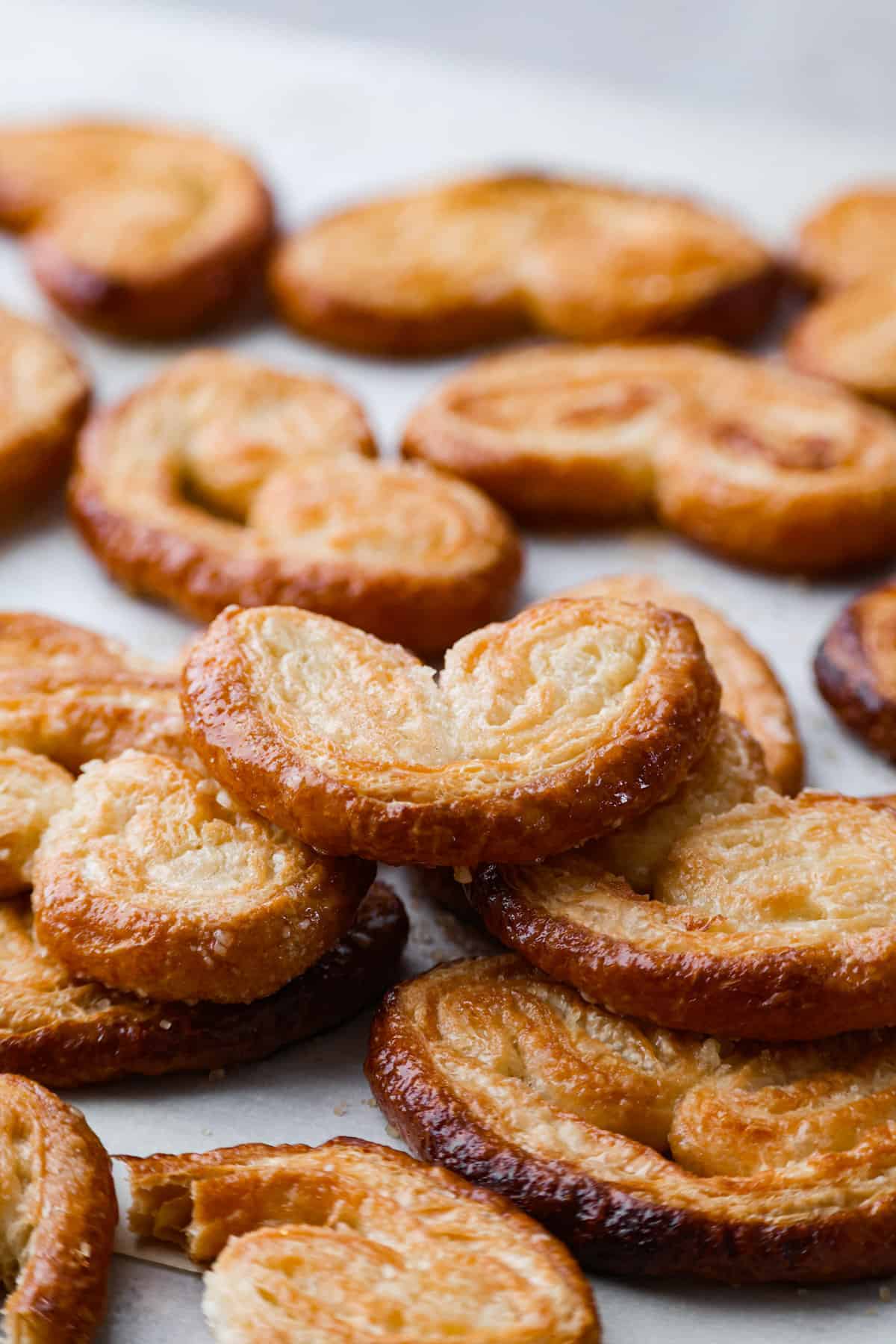
Palmiers, or “palm trees” in French, are a delightful pastry shaped like a palm leaf. With a buttery, flaky texture that’s impossible to resist, enjoy one fresh out of the oven and prepare to be amazed.
French baked goods are actually the best. If you’re up for the challenge, try making some fresh and delicious macarons or kouign amann next!
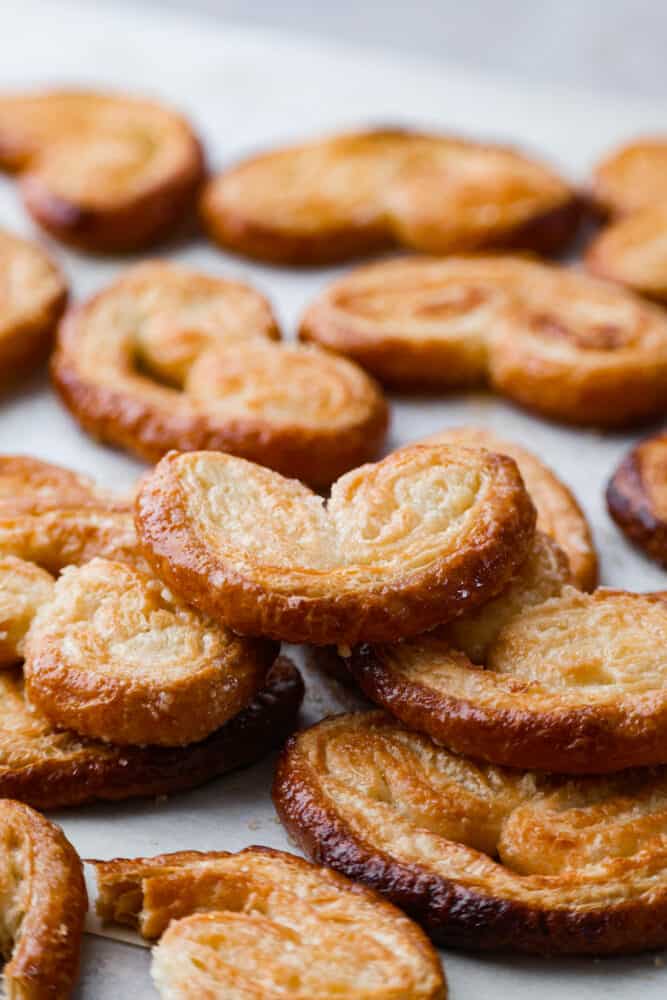
Palmiers Recipe
Palmiers go by a few different names. Palm hearts, pigs ears, or elephant ears! No matter what you call them, these heart-shaped pastries are sure to win you over. They’re also a breeze to make, requiring just a single sheet of puff pastry, granulated sugar, and a sprinkling of coarse sugar. Really, is there anything better than a simple dessert?
Just wait until you see these come out of the oven, though. They’re light, flaky and wonderful, with a gorgeous coating of caramelized sugar on top. One bite and you’ll be hooked! Palmiers: the pastries that are easy to make, but impossible to resist.
3 Ingredients
Yes, you read that right. It only takes 3 ingredients to whip up these flaky delights! Next time you’re at the store, pick up a pack of refrigerated puff pastry sheets! You won’t regret it.
- Sheet of Puff Pastry: The star of our show! Puff pastry dough is the foundation of our palmiers. Made with layers upon layers of buttery goodness, it’s what gives these treats their irresistible texture. As it bakes, the layers puff up, creating a light and airy pastry that practically melts in your mouth.
- Granulated Sugar: The granulated sugar plays a crucial role in transforming our palmiers into sweet delights. During baking, the granulated sugar caramelizes, creating a delicate and slightly crunchy crust.
- Coarse Sugar: Coarse sugar adds that extra element of texture and sparkle to the palmiers. These larger sugar crystals don’t fully dissolve during baking, leaving behind pockets of sweet surprise.
How to Make Palmiers
I feel like this is one of the few French pastry recipes that is actually foolproof. Really, you can’t mess these palmier cookies up. Here’s how to achieve buttery, flaky goodness:
- Preheat Oven, Prepare Baking Sheets: Preheat the oven to 450 degrees Fahrenheit and line two sheet pans with parchment paper.
- Add Sugar: Dust a clean surface with granulated and coarse sugar and place the puff pastry on top. Dust with more granulated sugar and lightly with the coarse sugar. Use a rolling pin to roll out the dough just until the sugar is pressed into it.
- Fold: Fold each side of the puff pastry in twice until they meet in the middle. Sprinkle with more sugar and fold in one more time, so the two sides touch.
- Cut: Use a sharp knife to cut the log into 24 slices, each about ¼ inch thick.
- Add to Baking Sheet: Place the cookies onto the baking sheets, leaving 2 inches between them.
- Bake: Bake for 6 minutes before removing from the oven and flipping each cookie over and baking for 4-6 minutes longer, until deeply golden brown.
- Cool and Enjoy: Let cool completely before serving.
plastic wrap
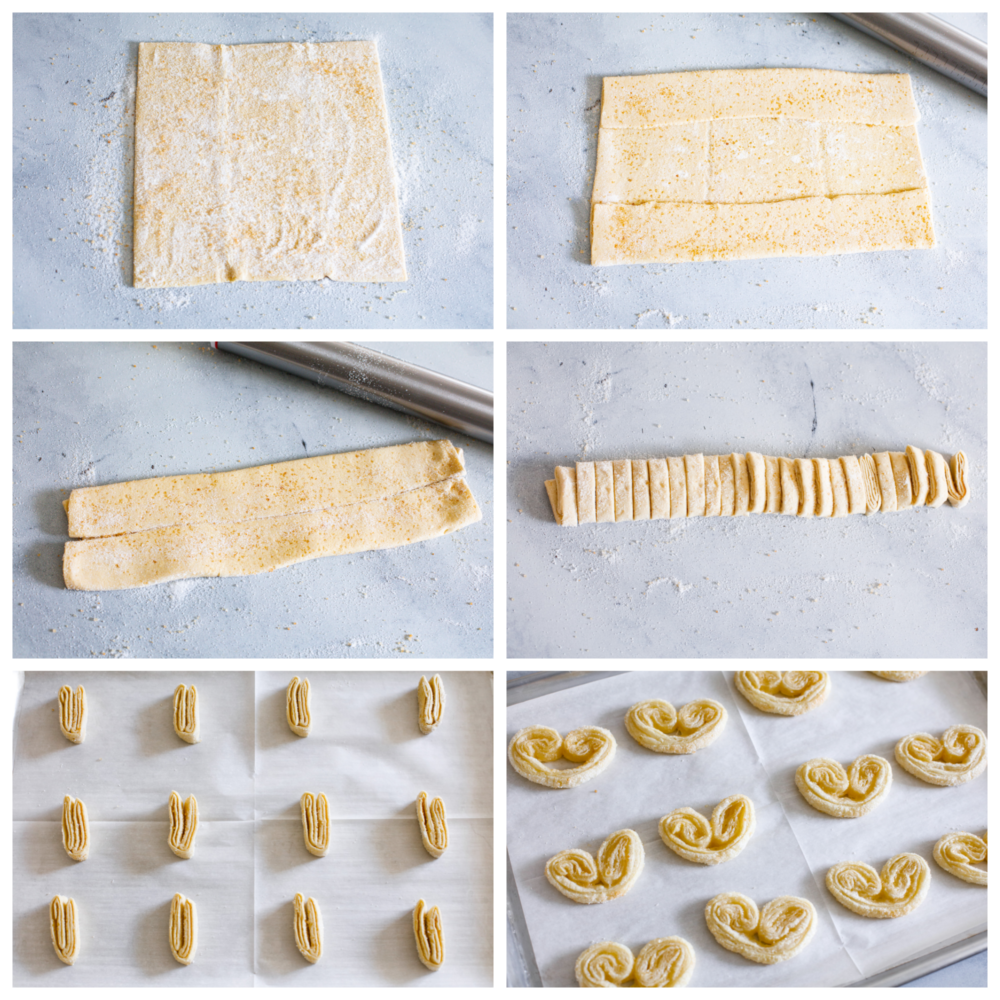
Tips and Tricks
These are a few simple ways to customize your palmiers just to your liking. I know you’ll love them as much as I do once you get a taste of their flaky texture and sweet, buttery flavor!
- Adjust the Sweetness: Add additional sugar as needed. These cookies can be more or less sweet, according to your liking.
- Add Other Flavors: For additional flavor, try mixing ½ teaspoon of ground cinnamon with the granulated sugar before using. You can also try using brown sugar instead of white sugar.
- Check if Done: Palmiers should be pretty dark in color when they are finished baking. The sugar melts and caramelizes as they cook, so it gives the cookies that dark brown color without them being burnt.
- Make Them Savory: Make your palmiers savory by swapping out the sugar for parmesan cheese, roasted garlic and butter; or pesto sauce!
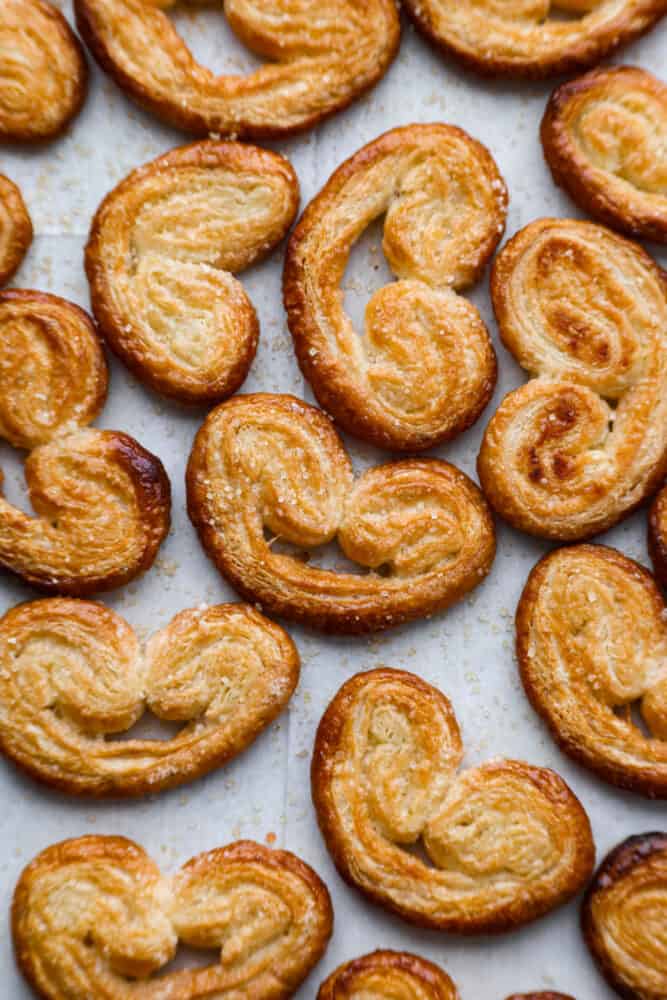
Storing Leftovers
Although palmiers are best eaten fresh, you can store leftover cookies at room temperature in an airtight container or wrapped in plastic wrap for 3-4 days.
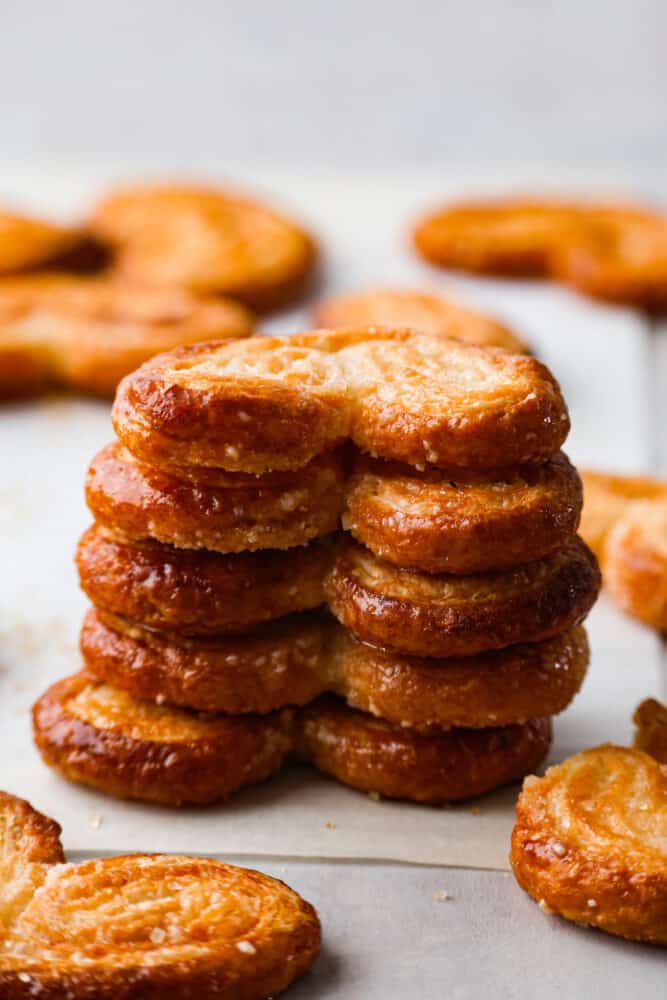
What Else Can I Make With Puff Pastry?
So many things! It’s a really useful ingredient to have on hand, actually. Here are a few more recipes made with layers of golden, flaky goodness.
-
Preheat the oven to 450 degrees fahrenheit and line two baking sheets with parchment paper.
-
Dust a clean surface with granulated and coarse sugar and place the puff pastry on top. Dust with more granulated sugar and lightly with the coarse sugar. Use a rolling pin to roll out the dough just until the sugar is pressed into it.
-
Fold each side of the puff pastry in twice until they meet in the middle. Sprinkle with more sugar and fold in one more time, so the two sides touch.
-
Use a sharp knife to cut the log into 24 pieces, each about ¼ inch thick.
-
Place the cookies onto the baking sheets, leaving 2 inches between them.
-
Bake for 6 minutes before removing from the oven and flipping each cookie over and baking for 4-6 minutes longer, until deeply golden brown.
-
Let cool completely before serving.
Serves: 24
Calories75kcal (4%)Carbohydrates9g (3%)Protein1g (2%)Fat4g (6%)Saturated Fat1g (5%)Polyunsaturated Fat0.5gMonounsaturated Fat2gSodium25mg (1%)Potassium6mgFiber0.2g (1%)Sugar5g (6%)Vitamin A0.1IUCalcium1mgIron0.3mg (2%)
All nutritional information is based on third party calculations and is only an estimate. Each recipe and nutritional value will vary depending on the brands you use, measuring methods and portion sizes per household.
Course Dessert
Cuisine French
Keyword palmiers, palmiers recipe





